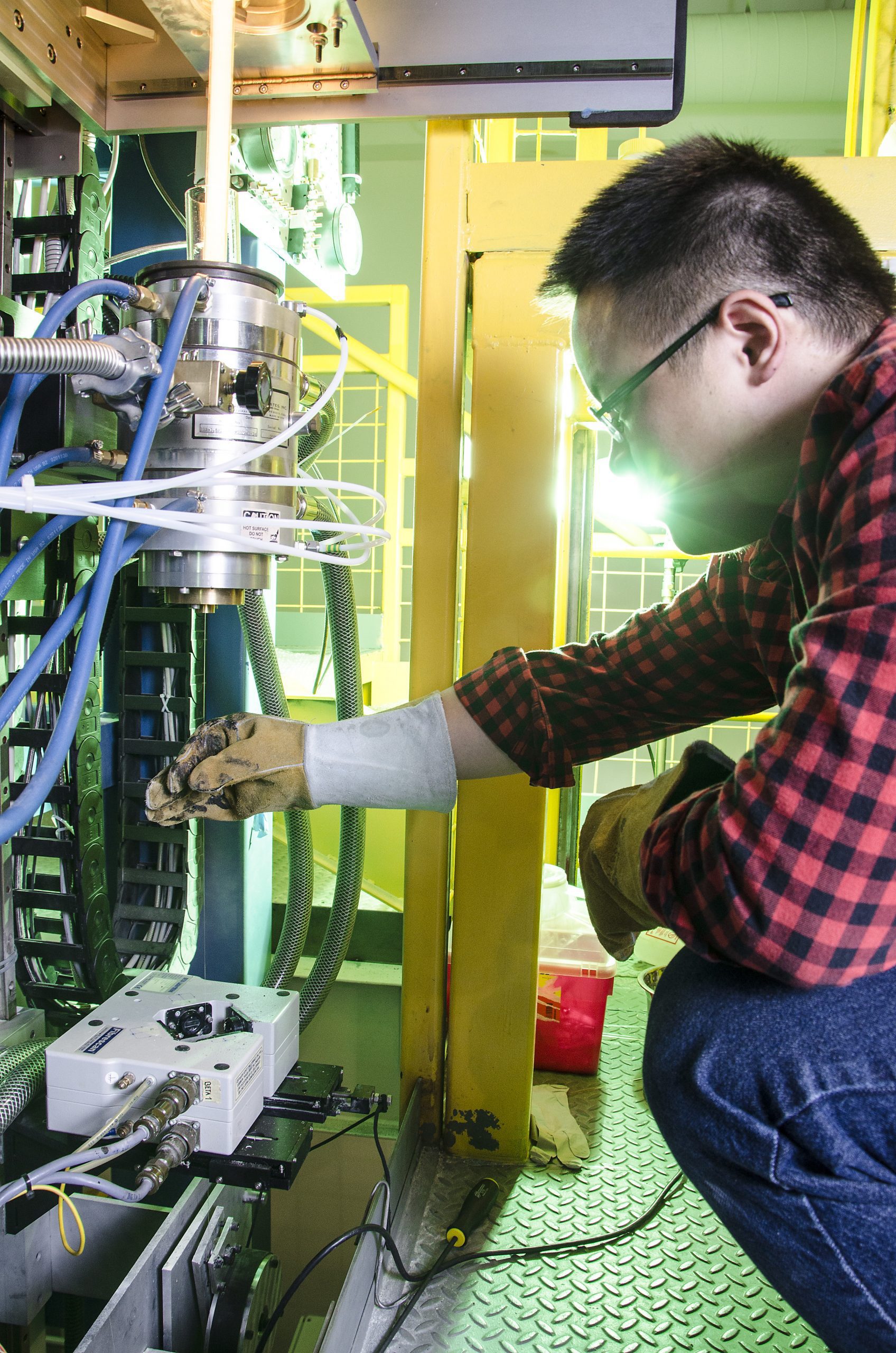Getting ahead in any field today requires the elusive concept of “experience.” Teachers and professionals constantly remind students that experience is what will set them apart from their peers, and every internship and job application requires a certain amount of it on your resume before even considering you as a candidate. This concept is often discouraging to early college students because it seems like they need experience to get experience.
Dr. Yadéeh Sawyer has observed as much herself within The University of New Mexico School of Engineering (SOE), where, as a retention program specialist at the Engineering Student Success Center (ESS), she has instituted a program called the Student Research Experience (SRE).
For years, ESS has offered various grant-funded undergraduate student research experiences mentored by SOE faculty (e.g. NSF STEP, DOE CIESESE, Native Americans in STEM, and others), but it was only able to institutionalize a few of these grant-funded initiatives when Sawyer joined the ESS team in the fall 2019 as its Retention Specialist. With the full backing from the ESS Director, Sawyer built, formalized, and implemented a solid research program that has become a key retention activity for first and second year students in the SOE.

The purpose of the SRE Program is to engage 1st and 2nd year students (although all SOE undergraduates are welcome) in their field of interest, in the hopes ot keep them connected to their major while they complete their core courses. This program provides SOE students with real-life research experiences in line with their career interests, beyond their general classes. Additionally, it cuts out the stressful application and internship search process, where GPA’s may act as a hinderance to opportunities, or barriers to early engagement presented with advance coursework requirements.. This program not only gives early students first pick and firsthand job experience with a UNM based graduate student or faculty member, but also to give them the confidence that they too belong and can offer something to the field, even without an extensive CV.
Any student in the SOE may apply, though priority is given to freshman and sophomores. Students who apply are matched with a professional research mentor, most often UNM faculty and sometimes outside researchers, to work alongside them as a student researcher, helping and learning about the research process. Both parties complete an interest form. The research mentors indicate the subject of their research, how many hours they would like the student to work, and whether the position is volunteer or paid. Students list the fields they are interested in, if they will volunteer, and how many hours they can commit each week to the research project. Students then attend a mandatory orientation session which covers both the basics of research, as well as program details and expectations. The program coordinator, Yadéeh Sawyer, then makes matches, acting as the conduit between the researcher and the student.. Participants are requested to commit one semester at a time, but have the opportunity to continue beyond that. As the students work with the researcher, they gaining many valuable experience, including being able to develop self-efficacy – learn early on about their potential and abilities as a researcher in their field.
The intention of the program is to engage students early in their academic path, to help them make an early connection and commitment to their desired field, Sawyer said, and that SRE gives a preview for what they are going to be doing in the real world, giving them a chance to solidify their academic and career path, as it fits their interests.
Sawyer prioritizes early college students because their core foundational courses do not always relate to their field of interest, causing them to become discouraged and disconnected from what they really want to do. An early support system such as SRE helps students bridge the difficult gap from being a novice to having extensive hands-on knowledge and work experience.
Beyond building confidence in the students’ own abilities and giving them a glimpse of prospective future work, they also gain invaluable skills that can only be taught through active and direct involvement in research and commitment to a position. Students develop scientific and professional literacies, collaboration and teamwork skills, time management, and critical thinking skills in an actual workplace setting. Students grow through hands-on participation, imparting an advanced understanding of the mechanics and inner workings of the research they do.
Students involved in SRE also have networking opportunities through their research mentor, as well as all the other professionals they come into contact with during their research experience, and become involved in the professional world. For instance, many students have had the opportunities to be co-authors on papers and present at conferences. These are extra skills beyond the initial position itself that make students strong candidates for other positions in the future. The SRE itself and all the academic opportunities arising as a result look great in portfolio materials, on resumes or CVs, and give students an advantage in any application process. Be it graduate school, research positions, internships, or otherwise, this background knowledge and advanced literacy in their field will sound extremely appealing to any interviewer.
To apply, fill out and submit the interest form found on the SRE website. Students who are matched will attend an orientation explaining the expectations of them as a student researcher, as well as a basic rundown of the components of research.
Sawyer highly encourages students who may not have the highest GPA or the most (or any) experience to apply.
“Any student is a researcher— don’t let imposter syndrome hold you back,” she urged. With real life experiences the SRE provides, students gain the self efficacy and the ability to “see yourself in that position as a leader.” By being engaged in research, students finally feel empowered as the real researchers they are. “We discover ourselves through what we engage in.”

